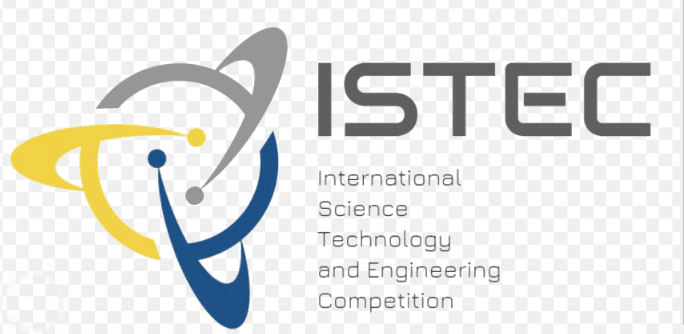Research projects by young South African (SA) scientists, aiming to address the country’s energy crisis and determining the extent to which artificial intelligence (AI) can be ethically monitored, amongst others, are currently being showcased at this year’s International Science Technology Engineering Competition (ISTEC) in Bali, Indonesia.
The four young scientists at Indonesia science competition, accompanied by Eskom Expo’s Business Manager, Mmamoloko Rancia Riba, won their places to represent SA after being nominated by a panel of academics and professionals at the Eskom Expo for Young Scientists International Science Fair (ISF) in October 2023.
The four Young SA Scientists at Indonesia science competition

Top left: S’qiniseko Mpilenhle Mpontshane; top right: Husna Docrat; bottom left: Isabel Lutz; bottom right: Rikyle Andrio Jordaan (Image: Eskom)
Rikyle Andrio Jordaan, a Grade 12 learner from Paterson High School in Gqeberha, (formerly Port Elizabeth), will showcase his research project – “Building a resilient grid: Leveraging solar, wind and hydro power for improved reliability.” Jordaan constructed a miniature power grid that effectively utilised solar, wind and hydro energy sources. By integrating these renewable energy resources, his research emerged as a significant contribution to addressing SA’s persistent energy crisis.
Husna Docrat, a Grade 11 learner at St Dominics Newcastle Curro in KwaZulu-Natal, will present her project – “Exploring the feasibility of bioplastics as alternatives to conventional plastics”. With conventional plastic bags taking approximately 20 years to decompose, Docrat developed a bioplastic solution as a sustainable alternative to these widely-used pollutants. She has shown an in-depth understanding of the environmental hazards of plastic use. Docrat’s project not only aims to mitigate plastic pollution, but also seeks to safeguard the well-being of plants, animals and the environment at large.
S’qiniseko Mpilenhle Mpontshane, a Grade 12 learner at Mandla Mthethwa School of Excellence in Ndumu, KwaZulu-Natal, is showing his research project -“Sustainable transportation using a solar-powered autonomous car.” Mpontshane’s innovative autonomous car prototype exemplifies the boundless potential of technology. His research encourages further advancements in renewable energy integration and autonomous vehicle technology, a buzz in the technology space. Rigorous performance evaluations conducted on the prototype have demonstrated the effectiveness of integrating solar power to supplement the car’s energy needs and implementing advanced navigation systems.
Isabel Lutz, a Grade 10 learner at Bloemhof Hoër Meisieskool in Stellenbosch, Western Cape is presenting her research project, entitled, “Integrating AI-enabled chatbots in the classroom – friend or foe?” The use of AI chatbots such as ChatGPT, Chatsonic and Google Gemini is becoming prevalent in classrooms around the world. Currently, global educators are grappling with issues arising from the ethics of learners using AI. Lutz’s project examines the effectiveness of using chatbots to assist second-language English learners with essay writing. Through her research, she sought to determine the extent to which AI integration is acceptable and how it can be ethically monitored to prevent any violations.
Eskom Expo Driving Science
The Chief Executive Officer of Eskom’s Acting Development Foundation Mologadi Motshele, said: “The research conducted by these young scientists covers a range of pressing contemporary issues, ranging from potential solutions to our country’s persistent energy crisis and advancements in renewable energy integration, to understanding the environmental impact of plastic use and exploring the effectiveness of chatbots; challenges society faces today. The fact that these young scientists are actively involved in addressing these issues highlights the importance of student participation in the Eskom Expo for Young Scientists. It demonstrates the crucial role Eskom Expo for Young Scientists plays in fostering skilled and enthusiastic scientists and innovators.
Eskom’s Expo Executive Director, Parthy Chetty, said: “These four young learners representing SA in the upcoming science competition in Bali, come from various parts of our country. It is therefore important for Eskom Expo and its partners, to ensure we continue to provide opportunities for our learners to thrive locally and travel abroad to compete. This enables learners to explore their passion in science while sharing their ideas with learners and judges from various countries. This interaction stimulates knowledge and cultural sharing in the science fields and allows these young learners to think globally and act local.”
The fifth edition of the ISTEC aims to encourage research and education in Indonesia, offering participants a distinct platform to nurture their passions in science, technology and engineering. Focusing on fostering collaboration among young scientists, teachers and budding researchers from diverse backgrounds, the competition endeavours to facilitate the exchange of ideas and experiences on a global scale.
Registration Open for 2024 Eskom Expo
Registration to take part in 2024 Eskom Expo is open. Learners in grades 4 to 12, along with TVET college learners (NC2 to NC4) can register their research projects by visiting www.exposcience.co.za







